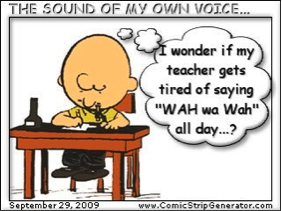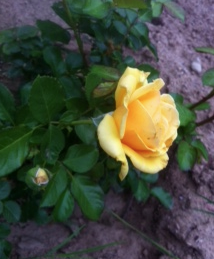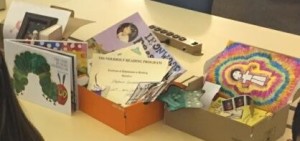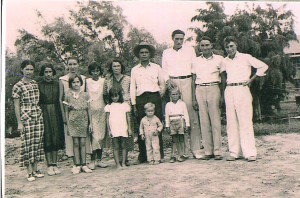My adult E.S.L. students were assigned presentations to help them with their verbal fluency. Through those presentations, I learned about a range of new topics including cooking native dishes such as Persian Potatoes Kuku, growing bean sprouts in the manner which Vi, a Vietnamese woman, learned from her mother. Teresa brought her binder of coupons and several large bottles of shampoo and explained to the class how she had purchased those bottles at no cost using manufactures coupons as well as store discounts. She immediately had their attention when she explained that she spent no money to buy the large bottles covering the desk. When asked why she needed so much shampoo she explained that her purchases were very much appreciated when given to friends and family in Mexico. Her presentation was among the most appreciated by the students, most of whom had no idea how to use coupons.
Asal, a young Afghani woman, shared with us about the beauty of her hometown in the Bamiyan Valley of central Afghanistan where ancient giant Buddha statues destroyed in 2001. Many of us in the class had followed that event when it happened but listening to someone from that geographic area speak about the devastation to her country with such deep sorrow was moving.
Mateo shared about his travels from Cuba to Ecuador and then up north through Central America to Texas. He brought in a handmade map drawn for the purpose of showing us his journey. He told us about the challenges of working as an immigrant in Ecuador and the difficulty of earning enough income to survive. Mateo spoke about the generosity of strangers who provided him with food and invited him into their homes during the long journey.
Unfortunately, when he finally arrived at the American border in Texas, he was astounded at the poor treatment he received from American border patrol agents. Their accent and appearance indicated that these border agents were Latino and definitely they were native Spanish speakers. They were rude and seemed to go out of their way to make it clear that they were not impressed by his pursuit of American citizenship. They treated him as if they were not themselves first generation children of immigrants. He left us speechless and brought us to tears. Those who were of Latino origin knew exactly the cultural experience Mateo described.
He shared the interactions that transpired between himself, an immigrant who quite literally sacrificed his life to get to this country, and the first Americans he met in the United States, descended from Latino immigrants. He was treated as an inferior, not worthy of respect. His will, his sacrifices and his steadfast focus on attaining his goals demonstrated a strength of character that thankfully most of us will never have to draw upon. Mateo saw the irony of the border agents who were treating those who followed in their fathers’ footsteps as if by negating the experiences of their parents they were more virtuous than someone recently arrived. Despite politics, immigration laws, and job duties, there are ways to treat others with civility and kindness. Mateo asked, “Why they cannot have compassion for someone who is like their parents?” It was a question to which there could be no satisfactory answer.


 The main idea: In every moment there exists a lifetime. Every day brings something good! I can’t wait to answer my student’s question!
The main idea: In every moment there exists a lifetime. Every day brings something good! I can’t wait to answer my student’s question!


